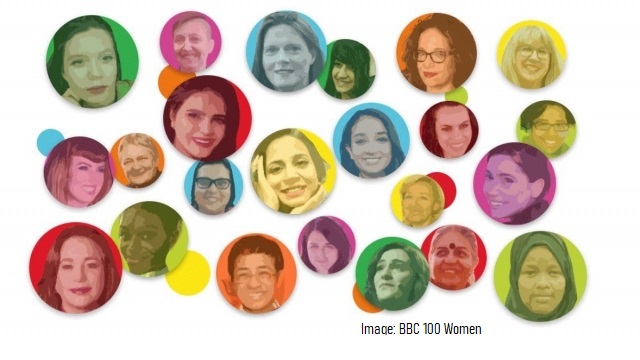If 90% of people are biased against women, is feminism useless? Or is the UN statistic meaningless?

Are we bored with gender equality? Does the advent of International Women’s Day not make our hearts race? Just in case, the United Nations Development Programme came up with a sensational statistic for IWD 2020: “close to 90 percent of men and women hold some sort of bias against women,” reported the UN body in a press release.
Ninety percent! Of men and women! I mean, that must leave only the people who work for the UN and women’s studies departments who are not biased. After six decades of second wave feminism, can this be true?
The statistic comes from UNDP’s gender gnomes – sorry, that should be norms, the “new Gender Social Norms Index”, which “measures how social beliefs obstruct gender equality in areas like politics, work, and education, and contains data from 75 countries, covering over 80 percent of the world’s population.”
What data? Well, for example, “about half of the world’s men and women feel that men make better political leaders, and over 40 percent feel that men make better business executives and that men have more right to a job when jobs are scarce. 28 percent think it is justified for a man to beat his wife.”
Now, of course beating your wife, or anybody, is not a mere “bias”, it is straight out wrong. But whether men are better at any particular role in society is a matter of opinion. Call it bias if you like, but that is a rather patronising attitude to half the world’s population – male and female, remember. It sounds very like bias.
Let people change their ideas about social roles in their own time, UNDP, and don’t go around throwing meaningless statistics at us.
As it turns out, new roles for women are proliferating. Just take a look at the BBC 100 Women project. The Beeb names 100 influential and inspirational women around the world every year, and among those featured for IWD is a bioartist who has 3-D printed a beating heart, and several intimacy co-ordinators.
A what kind of co-ordinator, you ask?
Intimacy. As in, “The women helping Hollywood to shoot safer sex scenes”. This is a cutting-edge role created in the wake of #MeToo, and the BBC profile introduces them thus:
“Alicia Rodis walks onto set in New York with a mission: to oversee the shooting of a very complex – and daring – group sex scene for a TV series on a major US network. She’s there to make sure the director observes the intimacy boundaries set by each of the 30 actors taking part.
“She keeps track of the conditions of their consent on a big spreadsheet, to make sure everyone is comfortable when the camera rolls.”
Mind-bending stuff, and one of the fastest-growing professions across the entertainment industry, we are told.
But in the full 2019 list they are all there: athletes, politicians, lady historians revealing the true history of women in ancient times, full-time human rights and other rights – including transgender – activists, a space entrepreneur, Greta Thunberg, AOC, a professional boxer, a monk, a nun…
No national president or prime minister, true, but practically everything other role you can think of – and some you would never have thought of, such as a Japanese woman giving “a voice to women in sumo wrestling”.
Some of the above, at least, will be wives and/or mothers, but apparently none of them have distinguished themselves at that. Perhaps they have closed the power gap in their personal lives and their husbands or partners are looking after the home front.
Indeed, nowadays women seem to be doing pretty much what they want. Feminists have not been idle. Zealously, tirelessly, sleeplessly, day in, day out, year after year, for six long decades, those gals at the UN and their pals in the sisterhood have been preaching, hectoring, exhorting, fulminating, nagging (oops, sorry, slip of the tongue), pontificating that girls can do anything (except have babies).
And what is the result? “90 percent of men and women hold some sort of bias against women”.
If feminism were a business, it would declare bankruptcy.
COLUMN BY
CAROLYN MOYNIHAN
Carolyn Moynihan is a New Zealand journalist with a special interest in family issues. She began her working life as a secondary school teacher but always fancied the life of the scribe. Too late, she realised that the latter is even more work than teaching Shakespeare to 15-year-olds and the pay is generally less. Being a reluctant geek, she has never quite got over the surprise of finding herself the deputy editor of an online magazine—a pleasant sensation for the most part.
She once wrote a book—the history of New Zealand’s own anti-porn movement in its heyday—for which she got mixed reviews and no awards. She lives in the country’s largest city, Auckland, which is three hours by plane from Sydney—the hub of MercatorNet—and too far for comfort from anywhere else of importance. Still, it is a very nice vantage point from which to meddle in the affairs of the world. Carolyn is deputy editor of MercatorNet.
RELATED ARTICLES:
International Women’s Day: marking the unremarkable woman – or disappearing her?
Misleading myths of feminism ignore the human heart
Is Elizabeth Warren a Closet Pro-lifer? Did that do in her campaign in?
EDITORS NOTE: This MercatorNet column is republished with permission. © All rights reserved.


List of, at most, two middle-class, three of high value and ninety-five utter parasites… all accordingly to His plan… Let Us fear not; the East arises.